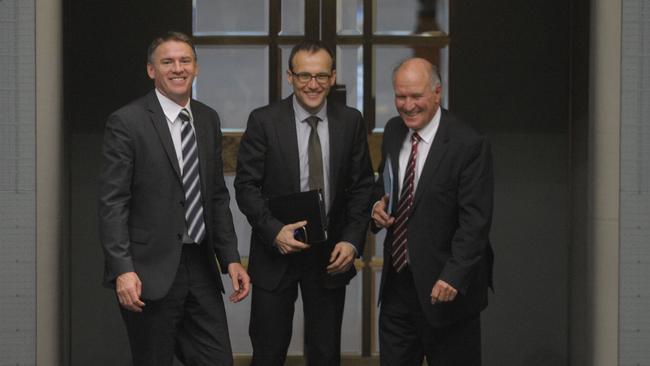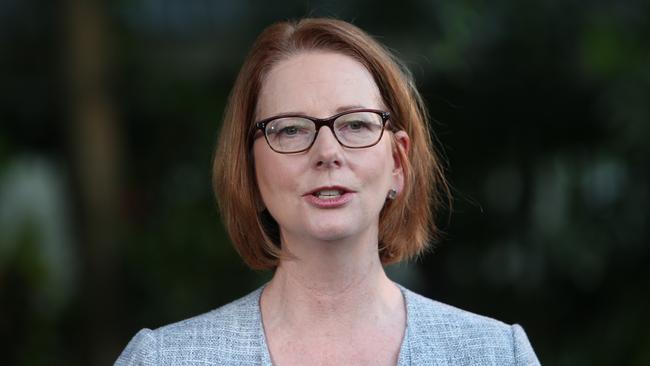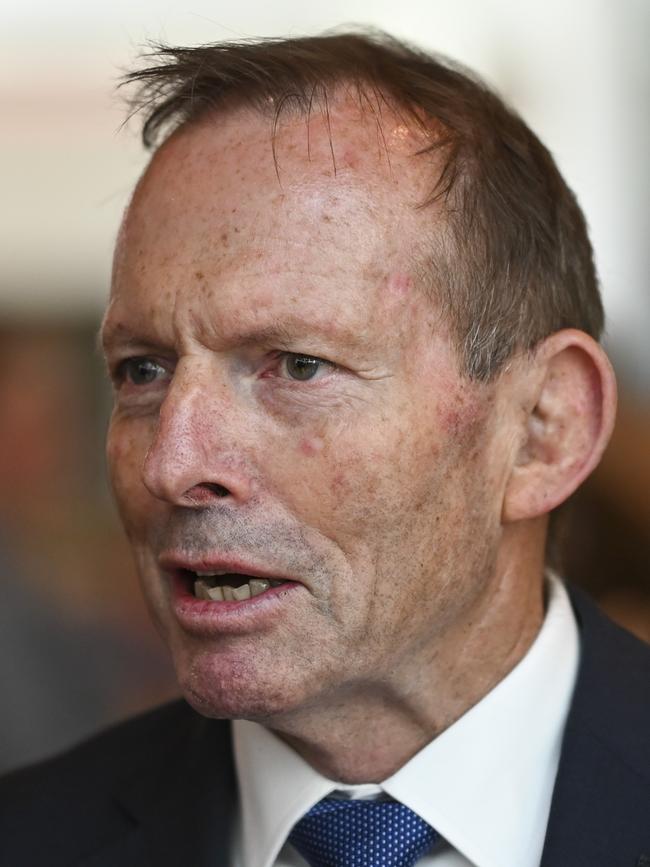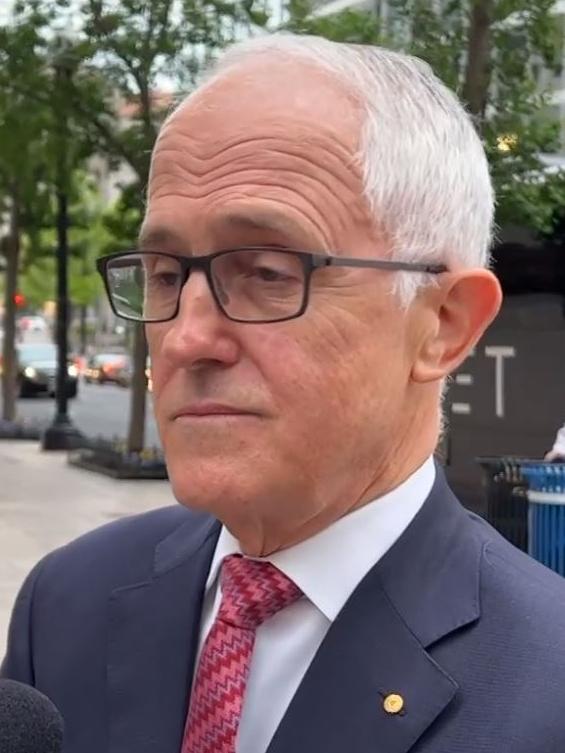Constitution can change, and together we can change nation for the better
Constitutional recognition for First Nations people will transform lives because it will be born from the agency of Australians.

The process that led to Thursday’s historic cabinet decision bodes well for the future voice. It was emotional for many of our people because for decades our communities have felt voiceless and powerless in their own country. This is an amendment all Australians should be proud of. This is an opportunity for Australians to change the nation for the better.
I am part of the carpet snake people, Barunggam speakers, west of the Bunya Mountains. My Davis family are Cobble Cobble people and they came from Warra, which is Barunggam-speaking country.
Our lands border the Bunya Mountains and stretch out along the Condamine River. My family were moved to Barambah Reserve run by the Salvation Army at the turn of the century around Federation. This mission is now known as Cherbourg. This move to protection is described in a now out-of-print book, Dumping Ground: A History of the Cherbourg Settlement, by Queensland historian Thom Blake:
“In the early months of 1901, as white Australians were undergoing their rite of passage into nationhood, another group of Australians were also participating in a rite of passage – but of a quite different kind. In the Burnett district of southeast Queensland, remnants of the Wakka Wakka tribe were being rounded up and dumped on a reserve on the banks of Barambah Creek. From camps on the fringes of towns and station properties, they had been forced on to an Aboriginal settlement established ostensibly for their care and protection. For the Wakka Wakka, their ‘rite of passage’ was not into nationhood or independence but into institutionalisation and domination. The two rituals were diametrically opposed.”
This week we are one step closer to uniting these two divergent paths. It was historic with the cabinet approving the referendum question, the constitutional alteration and elaborated details for a voice to parliament. The amendment has been subject to robust public debate. It has been rigorous. And working with some of the nation’s best legal minds, including the Solicitor-General, we believe the balance has been struck. The elaborated details provide much meat on the bones that allows the Australian people to have a conversation with First Nations about what a voice looks like.

Constitutional recognition has been a pursuit of First Nations and Australians for well over a decade. Some attribute it to the republican movement where recognition was a part of the preamble that was put to the Australian people. Following that referendum, constitutional recognition was the subject of multi-party electoral platforms.
The Gillard government set up the expert panel following the hung parliament and negotiations for power in the lower house. It was the Greens’ Adam Bandt and independents Rob Oakeshott and Tony Windsor who called on Gillard to make a move on this multi-party support for constitutional recognition. It has been 12 years.
The nation is in the second decade of constitutional recognition. It is the Albanese government that is taking the constitutional recognition – a voice – to a referendum. The Coalition has walked this journey, too. The Referendum Council was set up because First Nations said that symbolism was not enough. Tony Abbott listened to what we had to say and committed to a new dialogue. We said our people would not support a change to the Constitution that did practically nothing on the ground. He agreed to another process so we could ask First Nations people themselves what meaningful recognition would look like in their communities in the regions. Malcolm Turnbull promptly set up the Referendum Council after becoming prime minister and it is from that process that we heard that a voice is both symbolic recognition and substantive, meaningful recognition.
The communities understand parliamentary sovereignty and that this was the “big law”, the Constitution, and we could not override the parliament but we could make a constructive and nuanced contribution to the laws and policies made about us. This is a substantive improvement on the status quo.


This amendment will give our dry and legal founding document words befitting our country. Australian children in the future will come to learn about section 129, and the new chapter that recognises the First Peoples of this ancient continent and the descendants of the most ancient polities.
One of the driving forces of the support of the Uluru Statement from the Heart has been the invitation to the Australian people. We are not Pollyanna idealists. We are pragmatists. We have watched our issues become political football games trapped in the frame of ideology and tribal politics, masquerading as thoughtful engagement. The way things have been done in the past, the status quo, means that there is no change in our community. The old way of doing things means there is no change in our community.
We knew if the constitutional recognition route continued along a path of engagement with retail Australian politics that Australia would never find its way to constitutional recognition. This provision will make a difference. It will transform lives. Because it will be born from the agency of the Australian people and the act of Indigenous and non-Indigenous Australians working together to effect change. Much like the way we as Aussies roll up our sleeves and work together during natural disasters, relying on each other, this is what sits behind the momentum for change.
Most Australians are shocked to hear that we do not influence or inform laws and policies that impact upon our lives. This is a fact, this is the reality. Many who purport to question the exigency of a voice have no experience or no expertise in the field of Indigenous affairs. Before the voice, they never wrote on policies or programs relating to the First Peoples. This is why listening to the voices of Aboriginal and Torres Strait Islander people is so important.
Six years ago when we left the rock after undertaking the only constitutional process involving First Peoples since Federation, we felt the weight of history. We had stood in those 12 rooms listening to our people speak about the strengths of our people but the weakness of a system that does not recognise who we are.
Two decades ago I became a constitutional lawyer because I saw in the protection files of my grandfather and grandmother and uncles the power of the law and the power of the Australian Constitution. But I also know, as my old mentor the great Jewish jurist Garth Nettheim, wrote, that the law can oppress but the law can redeem. When we went to the dialogues and spoke about the Constitution they were in no mood for the conversation. But we said that law reform was about imagining that the world could be a better place. To imagine that Australia can change because the Constitution is built to change.
And our people, despite everything that has come before, rolled up their sleeves and got to work because they know that the Constitution can change. They did it once before. Our people believe in the goodwill of the Australian people. Together we can change the nation.
Megan Davis is the Balnaves Chair in Constitutional Law and Pro Vice Chancellor Society at University of NSW



To join the conversation, please log in. Don't have an account? Register
Join the conversation, you are commenting as Logout